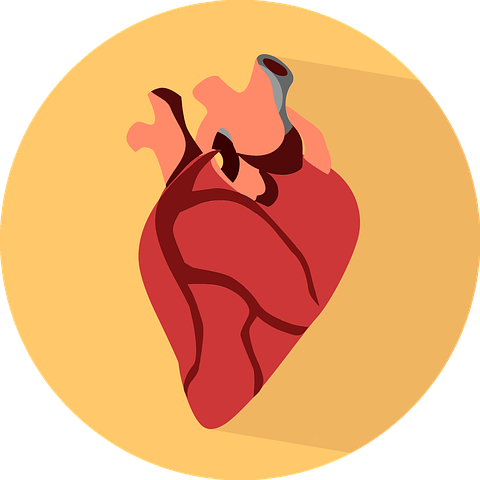Here's What Sitting Too Long Does to Your Body

What happens to your body when you sit for too long?
Your body is designed for regular movement, but many people spend the bulk of their day sitting still instead. On average, a US adult spends nine to 10 hours each day sitting, which is so much inactivity that even a 30- or 60-minute workout can't counteract its effects.
As Katy Bowman, author of the book: "Move Your DNA: Restore Your Health Through Natural Movement", said:
"Actively sedentary is a new category of people who are fit for one hour but sitting around the rest of the day… You can't offset 10 hours of stillness with one hour of exercise."
But even worse, many people don't fit in a workout or a long walk either, which means their bodies are virtually always in a sedentary state. It's not that sitting is inherently dangerous… the danger is in the dose and completely lacking natural body movement.
While a short period of sitting here and there is no problem at all, long periods of sitting day-in and day-out can seriously impact your health and shorten your life.
Studies show that when you've been sitting for a long period of time and then get up, a number of molecular cascades occur. For example, within 90 seconds of standing up, the muscular and cellular systems that process blood sugar, triglycerides, and cholesterol—which are mediated by insulin—are activated.
All of these molecular effects are activated simply by carrying your own bodyweight. These cellular mechanisms are also responsible for pushing fuel into your cells and, if done regularly, will radically decrease your risk of diabetes and obesity.
In short, at the molecular level, your body was designed to be active and on the move all day long. When you stop moving for extended periods of time, it's like telling your body it's time to shut down and prepare for death.
Here is a description of what happens in various areas of your body after prolonged sitting:
Organ and brain damage
When you sit, blood flows slower and muscles burn less fat, which makes it easier for fatty acids to clog your heart. Research published in the Journal of the American College of Cardiology, for instance, showed that women who sit for 10 or more hours a day may have a significantly greater risk of developing heart disease than those who sit for five hours or less.

Research published in Diabetologia found that those who sat for the longest periods of time were twice as likely to have diabetes or heart disease, compared to those who sat the least. Sitting for more than eight hours a day has also been associated with a 90 percent increased risk of type 2 diabetes.
Excess sitting may also increase your risk of colon, breast, and endometrial cancers. The mechanism isn't known for certain, but it could be due to excess insulin production, which encourages cell growth, or the fact that regular movement boosts antioxidants in your body that may eliminate potentially cancer-causing free radicals. Other findings presented at the 2015 Inaugural Active Working Summit also found that sitting increases lung cancer by 54 percent, uterine cancer by 66 percent and colon cancer by 30 percent.
Another reason for this increased cancer risk is thought to be linked to weight gain and associated biochemical changes, such as alterations in hormones, metabolic dysfunction, leptin dysfunction, and inflammation—all of which promote cancer.
Moreover, your brain function slows when your body is sedentary for too long. Your brain will get less fresh blood and oxygen, which are needed to trigger the release of brain- and mood-enhancing chemicals.
Posture problems and muscle degeneration
It is common to hold your neck and head forward while working at a computer or cradling a phone to your ear. This can lead to strains to your cervical vertebrae along with permanent imbalances, which can lead to neck strain and sore shoulders. Sitting also puts more pressure on your spine than standing, and the toll on your back health is even worse if you're sitting hunched in front of a computer.

It's estimated that 40 percent of people with back pain have spent long hours at their computer each day. The disks in your back are meant to expand and contract as you move, which allows them to absorb blood and nutrients. When you sit, the disks are compressed and can lose flexibility over time. Sitting excessively can also increase your risk of herniated disks.
When your body lacks movement, you do not really use your muscles anymore. Standing requires you to slightly tense your abdominal muscles, which go unused when you sit, ultimately leading to weak abdominals. Another consequence that I see a lot as a trainer are hip problems. Your hips suffer from prolonged sitting, becoming tight and limited in range of motion because they are rarely extended. In the elderly population, decreased hip mobility is a leading cause of falls. Sitting also does nothing for your glutes, which may become weakened, affecting your stability and the power of your stride when walking and jumping.
Too Much Sitting Can Take Years Off Your Life
The more hours you spend sitting during a day, the shorter your lifespan may be. One study found, for instance, that reducing the average time you spend sitting down to less than three hours a day could increase your life expectancy by two years.
Another study, published in the British Journal of Sports Medicine, concluded that each hour spent watching television after the age of 25 reduces your life expectancy by nearly 22 minutes. To put this into perspective, the authors compared it to smoking – each cigarette reduces your life expectancy by about 11 minutes. All in all, the researchers found that adults who spend an average of six hours in front of the TV will reduce their life expectancy by just under 5 years, compared to someone who does not watch TV.
Inactivity is not supposed to be a way of life
The point here is simple: There is a non-negligible impact of sitting on mortality, and given the extremely high prevalence of these behaviors in our society today, they can have a noticeable impact on your lifespan.
THEREFORE WE MUST START MOVING MORE AGAIN. Our individual life quality and happiness depend on being healthy. IT'S ABOUT SMALL CHANGES IN YOUR DAILY LIFE AND IT'S YOUR DECISION.
So get up and keep moving a little more every day :)

Hi! I am a robot. I just upvoted you! I found similar content that readers might be interested in:
https://fitness.mercola.com/sites/fitness/archive/2015/05/08/sitting-too-long.aspx